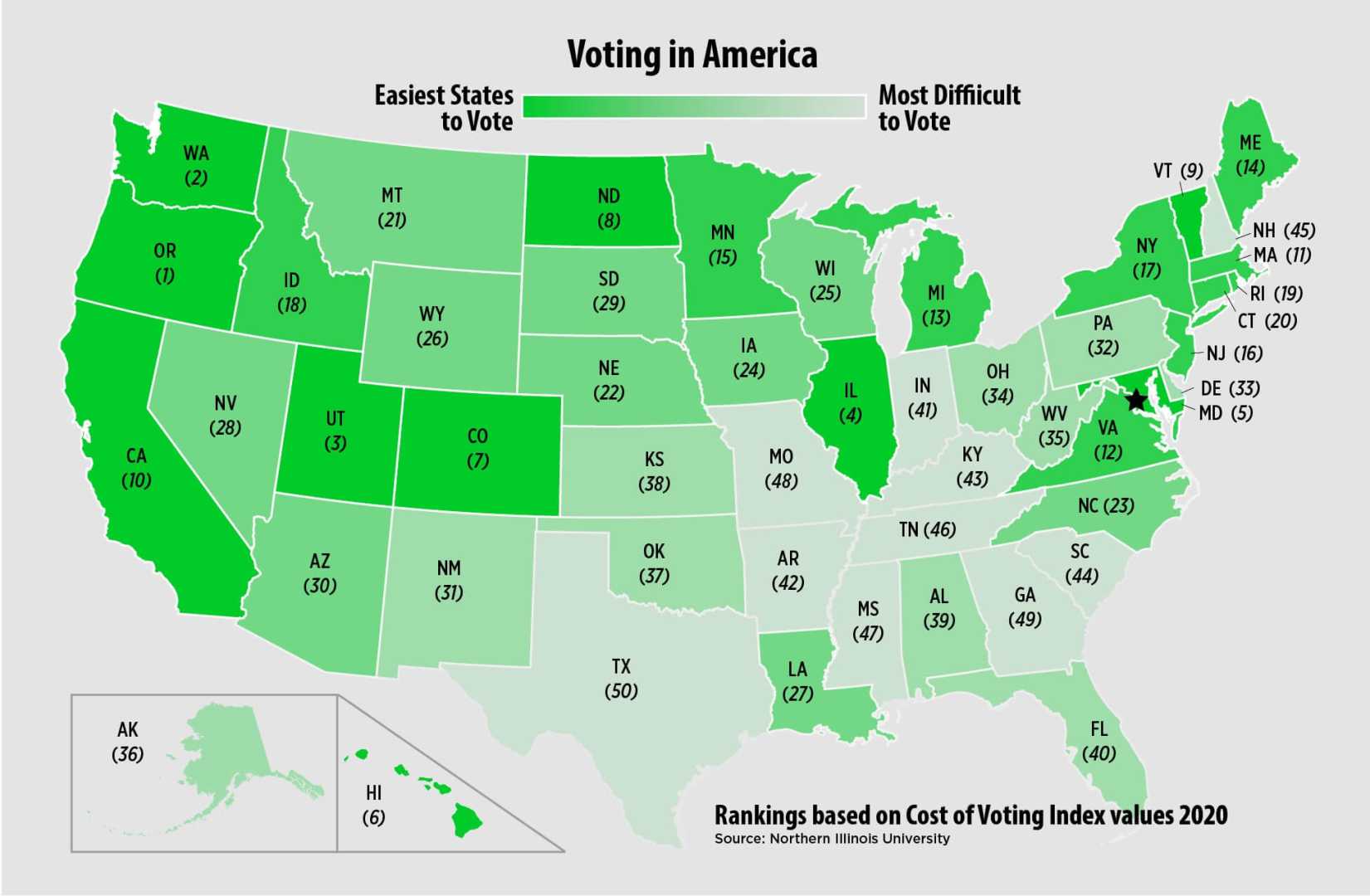Politics
State Voting Laws Influence Voter Participation Across the U.S.

Several U.S. states offer paid time off or designate public holidays to facilitate voting, though there is no federal mandate requiring such leave. The policies differ across the country, with some states implementing stronger measures to support voter participation than others.
Generally, these laws aim to mitigate work-related barriers to voting, enabling citizens to participate in elections without jeopardizing their employment. Newsweek has reported on the states where Election Day is recognized as a public holiday and those that provide paid leave for voting.
Currently, five states recognize Election Day as both a public holiday and require employers to provide paid time off for voting. Data from the Movement Advancement Project (MAP) indicates that these states comprise about 13 percent of the voting-eligible population.
In addition, nine states have made Election Day a public holiday without mandating paid leave for voting. In contrast, 17 states, including populous ones like California and Texas, require employers to offer paid time off to vote without designating Election Day as a public holiday.
For instance, in California, voters can receive up to two hours of paid leave if they lack sufficient time to vote outside of working hours. Employers must grant this time at either the start or end of a shift to minimize disruptions, provided employees request it in advance.
Texas also allows employees to take leave unless the polls are open for two consecutive hours outside their regular working hours. Some states, such as Maryland, require employees to show proof of voting to qualify for paid leave.
States without voting leave provisions, like Connecticut, Louisiana, and Michigan, place the responsibility entirely on voters to make their own arrangements. In these regions, voters rely on flexible work hours, mail-in ballots, or early voting periods to cast their votes without affecting their employment status.
Several companies have voluntarily joined initiatives like Vote.org‘s ElectionDay.org program, offering employees paid time off to vote regardless of state laws. According to Vote.org, as many as 35 percent of non-voters cited scheduling conflicts, including work, as the primary factor keeping them from the polls during past elections.
Andrew Rudalevige, an honorary professor at University College London‘s center for U.S. Politics, emphasized the challenges in the American electoral system, noting the costs associated with taking time off work to vote. However, he acknowledged that recent electoral reforms have eased some of these burdens.












